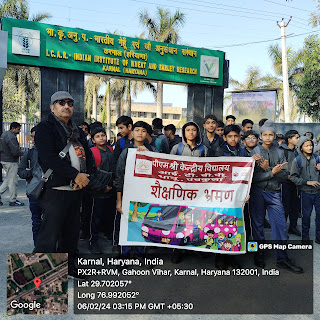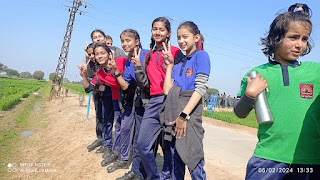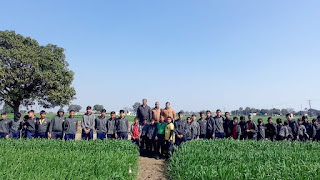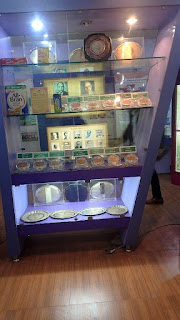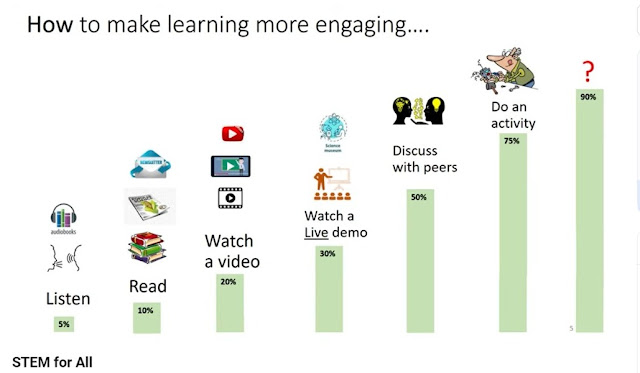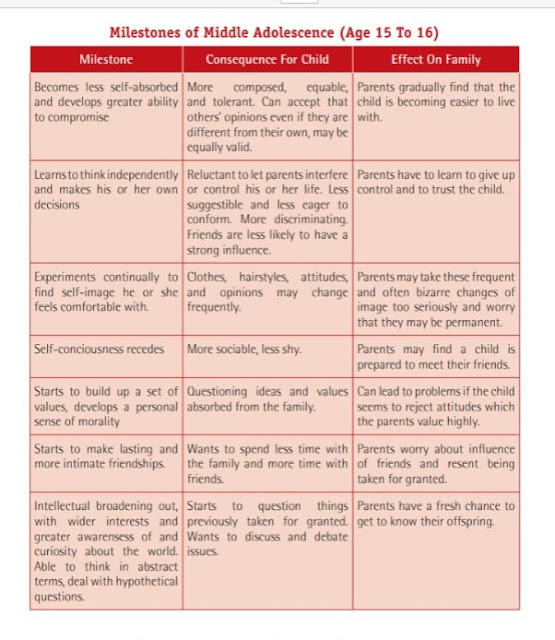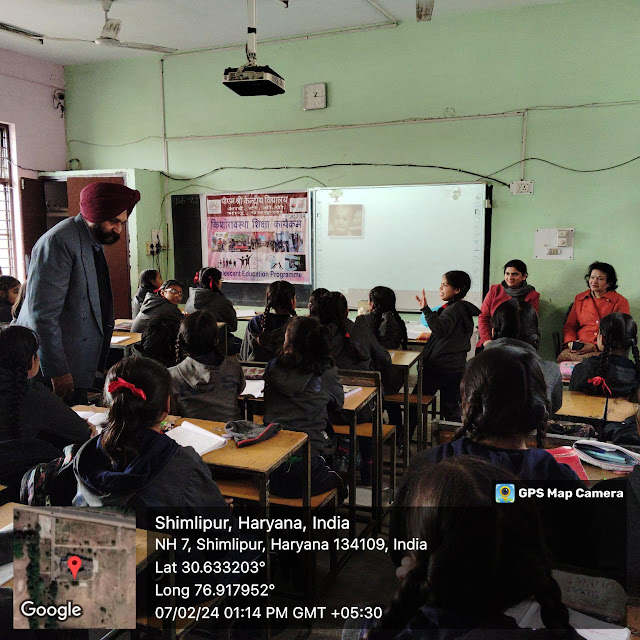LIBRARY-PMSHRI KV-ITBP-BHANU-PKL-500024/44521: Report Writing (kvbhanulibrary.blogspot.com)
" TO DEVELOP CREATIVITY, INNOVATION, LIFE SKILLS, SCIENTIFIC TEMPERAMENT & LANGUAGE SKILLS APART FROM CAREER COUNSELLING AND PERSONALITY DEVELOPMENT” " PLUS TO CATER ALL THE INFORMATION NEEDS OF KVS TEACHERS AND STUDENTS. WE ACKNOWLEDGE OUR SINCERE THANKS TO ALL KNOWN & UNKNOWN CONTRIBUTORS ON WEB, WHERE SOURCE IS UNKNOWN / UNTRACEABLE/LINKED (THIS IS AN ERSTWHILE " KV REWARI LIBRARY " BLOG URL-kvrewarilibrary.blogspot.com TILL 30.09.2019.)
Search This Blog
LIB
- HOME- LIB-BLOG
- X-KV-BHANU
- E BOOKS
- E MAGAZINES
- E-NEW PAPERS
- KV BHANU
- LIBRARY
- MAG-SUBSCRIPTION
- STD-ORIENTATION
- BEST SCHOOL4MY KIDS
- CAREER-SIKSHA
- KVS ADMISSIONS
- X-KV BHANU
- KVS CIRCULARS
- ABOUT KVS
- ADMISSIONS IN KVS
- JAGO GRAHAK
- LIB. ANNUAL REPORT
- VICKAS -YOUTUBE
- EG 4.0.NIC
- EG 4.0 OPAC
- SUGAMAYA
- OLD Q.P. OLYMPIADS
- BHARAT KOSH
- EDUCATIONAL NEWS-EW
- NMEICT
- APAAR
- NASA
- SATHEE-GK & Current Affairs
- ONLINE BOOK REVIEW
- DIGITAL VOCATIONAL BOOKS
- DIKSHA
- NISTHA
- SCHOLASTIC WORLD
- CALCULATOR
- GLOBAL PUBLISHERS
- GLOBAL AUTHORS
- GLOBAL REFRENCE LINKS
- KVS LIB POLICY 2012
- LIB GUIDELINES KVS-2018
- NATIONAL PORTAL OF INDIA
- NCERT AUDIO TEXT BOOKS
- PROJECT INCLUSION
- SAMAGAM-KVS
- PIMS-KVS
Wednesday, 7 February 2024
Educational Trip To ICAR - IIWBR
 BLOG FOCUS-
COUNTRY FIRST,HEALTH & HYGIENE,GRATITUDE / VALUES, NOTHING IS FREE (work Hard) ENVIRONMENT, ROAD SAFETY & TRAFFIC RULES, LANGUAGE, SCIENTIFIC TEMPERAMENT & LIFE SKILLS.
BLOG FOCUS-
COUNTRY FIRST,HEALTH & HYGIENE,GRATITUDE / VALUES, NOTHING IS FREE (work Hard) ENVIRONMENT, ROAD SAFETY & TRAFFIC RULES, LANGUAGE, SCIENTIFIC TEMPERAMENT & LIFE SKILLS.
BOOKS PURCHASE STATUS 2023-24
 BLOG FOCUS-
COUNTRY FIRST,HEALTH & HYGIENE,GRATITUDE / VALUES, NOTHING IS FREE (work Hard) ENVIRONMENT, ROAD SAFETY & TRAFFIC RULES, LANGUAGE, SCIENTIFIC TEMPERAMENT & LIFE SKILLS.
BLOG FOCUS-
COUNTRY FIRST,HEALTH & HYGIENE,GRATITUDE / VALUES, NOTHING IS FREE (work Hard) ENVIRONMENT, ROAD SAFETY & TRAFFIC RULES, LANGUAGE, SCIENTIFIC TEMPERAMENT & LIFE SKILLS.
Sunday, 4 February 2024
21st Century Skills
The Glossary of Education defines 21st Century Skills as follows:
“The term 21st century skills refers to a broad set of knowledge, skills, work habits, and character traits that are believed— by educators, school reformers, college professors, employers, and others—to be critically important to success in today’s world.”
- Delors Report - Learning to Know, Learning to Do, Learning to Live Together and Learning to Be.
- WHO Life Skills:• Decision-Making and Problem-Solving; • Creative Thinking and Critical Thinking; • Communication and Interpersonal Skills; • Self-Awareness and Empathy; • Coping with Emotions and Coping with Stress.
- OECD:: i) Communication, ii) Information and , iii) Ethics and Social Impact.
- ATCS: ATCS categorized 21st century skills into four types: i) Ways of Thinking, ii) Ways of Working, iii)Tools for Working and, iv) Living in the World.
- UNESCO Working Paper: Revisited and divided all above -researched Skills into Learning to Know, Learning to Do, Learning to Live.
21st CENTURY STUDENT'S SKILLS [3L-4C-MIT-FLIPS]
 BLOG FOCUS-
COUNTRY FIRST,HEALTH & HYGIENE,GRATITUDE / VALUES, NOTHING IS FREE (work Hard) ENVIRONMENT, ROAD SAFETY & TRAFFIC RULES, LANGUAGE, SCIENTIFIC TEMPERAMENT & LIFE SKILLS.
BLOG FOCUS-
COUNTRY FIRST,HEALTH & HYGIENE,GRATITUDE / VALUES, NOTHING IS FREE (work Hard) ENVIRONMENT, ROAD SAFETY & TRAFFIC RULES, LANGUAGE, SCIENTIFIC TEMPERAMENT & LIFE SKILLS.
STEM- BY- IISER Pune Science Activity Centre
Dear All,
We are happy to announce our next online talk for school students, teachers, and parents from Smt. Indrani Balan Science Activity Centre, IISER Pune.
For the Love of Physics - Walter Lewin - ON
Please share this information with your students and friends.
On behalf of the outreach team, IISER Pune
 BLOG FOCUS-
COUNTRY FIRST,HEALTH & HYGIENE,GRATITUDE / VALUES, NOTHING IS FREE (work Hard) ENVIRONMENT, ROAD SAFETY & TRAFFIC RULES, LANGUAGE, SCIENTIFIC TEMPERAMENT & LIFE SKILLS.
BLOG FOCUS-
COUNTRY FIRST,HEALTH & HYGIENE,GRATITUDE / VALUES, NOTHING IS FREE (work Hard) ENVIRONMENT, ROAD SAFETY & TRAFFIC RULES, LANGUAGE, SCIENTIFIC TEMPERAMENT & LIFE SKILLS.
Examination To Results and New session 2024 NON BOARD CLASSES
1. वर्तमान सत्र की अपनी पुस्तकों को अच्छी तरह से ठीक करें और कच्चे कामों को हटा दें और अगली कक्षा के लिए अपने अध्ययन क्षेत्र को भी सजाएं।
2. अपने विषय/टॉपिक की उन कमजोरियों को सूचीबद्ध करें जिन्हें आप वार्षिक परीक्षा के दौरान सहज नहीं थे और अधिक से अधिक सीखें ताकि भविष्य में उन विषयों पर आपको डर न लगे।
3. अपनी सभी पुस्तकें उपहार में दें जिनकी आपको ज़रूरतमंद छात्रों को ज़रूरत नहीं है लेकिन केवल अच्छी स्थिति में। "पुस्तकौफर"
4. अपना अगला सत्र खरीदें/उधार लें एनसीईआरटी की किताबें उन्हें अच्छी तरह से कवर करती हैं और बस सामग्री सूची और सभी विषयों के कुछ प्रारंभिक अध्यायों को पढ़ें।
5. रचनात्मक और अभिनव गतिविधियों या जीवन कौशल के लिए अपनी छोटी छुट्टियों की योजना बनाएं जैसे: सीखना/खेल/खेल/योग/तैराकी/क्ले मॉडलिंग/ट्रैकिंग/सड़क सुरक्षा/यातायात नियम आदि।
6. अपने अध्ययन क्षेत्र और सीखने की एक अच्छी तस्वीर लें।
7. आपदा प्रबंधन के तहत आपको एक रचनात्मक गतिविधि सौंपी गई है।
(आपातकालीन प्रबंधन)
प्राथमिक चिकित्सा बॉक्स
कक्षा छठी से दसवीं तक।
1. रेड क्रॉस सोसाइटी या डब्ल्यूएचओ के दिशानिर्देशों के अनुसार अपने घर-स्कूल के लिए एक छोटा प्राथमिक चिकित्सा बॉक्स तैयार करें।
2. वस्तुओं को एक छोटे से चार्ट पर सूचीबद्ध करें और प्राथमिक चिकित्सा बॉक्स में रखें।
3. उन लोगों के संपर्क विवरण की एक छोटी डायरी बनाएं जिनसे आपको आपदा के बाद की घटना में संपर्क करने की आवश्यकता है और बॉक्स में रखें।
4. अपने प्राथमिक चिकित्सा बॉक्स की सूची में सूचीबद्ध केवल एक वस्तु को रखें।
5. बॉक्स के नीचे लाल रंग का प्लस चिन्ह और अगली कक्षा की अपनी नाम पर्ची और मोबाइल नंबर अवश्य अंकित करें।
6. फास्ट एपीपी (First Aid for StudentsTeachers) से प्राथमिक चिकित्सा सीखें।
7. सहयोगी अधिगम के लिए अपने माता-पिता, भाइयों, बहनों और दोस्तों को शामिल करें।
8. यदि संभव हो और आस-पास, एक PHC पर जाएँ। स्वास्थ्य केंद्र और निरीक्षण करें कि नर्सिंग स्टाफ प्राथमिक उपचार कैसे करता है।
9. आपको कम से कम 5 चोटों का प्राथमिक उपचार बताने और देने में सक्षम होना चाहिए।
10. अपना फर्स्ट एड बॉक्स स्कूल में लाएँ और अपने क्लास टीचर को दिखाएँ।
 BLOG FOCUS-
COUNTRY FIRST,HEALTH & HYGIENE,GRATITUDE / VALUES, NOTHING IS FREE (work Hard) ENVIRONMENT, ROAD SAFETY & TRAFFIC RULES, LANGUAGE, SCIENTIFIC TEMPERAMENT & LIFE SKILLS.
BLOG FOCUS-
COUNTRY FIRST,HEALTH & HYGIENE,GRATITUDE / VALUES, NOTHING IS FREE (work Hard) ENVIRONMENT, ROAD SAFETY & TRAFFIC RULES, LANGUAGE, SCIENTIFIC TEMPERAMENT & LIFE SKILLS.
AEP
 BLOG FOCUS-
COUNTRY FIRST,HEALTH & HYGIENE,GRATITUDE / VALUES, NOTHING IS FREE (work Hard) ENVIRONMENT, ROAD SAFETY & TRAFFIC RULES, LANGUAGE, SCIENTIFIC TEMPERAMENT & LIFE SKILLS.
BLOG FOCUS-
COUNTRY FIRST,HEALTH & HYGIENE,GRATITUDE / VALUES, NOTHING IS FREE (work Hard) ENVIRONMENT, ROAD SAFETY & TRAFFIC RULES, LANGUAGE, SCIENTIFIC TEMPERAMENT & LIFE SKILLS.
Friday, 2 February 2024
Menstrupedia- AEP
 BLOG FOCUS-
COUNTRY FIRST,HEALTH & HYGIENE,GRATITUDE / VALUES, NOTHING IS FREE (work Hard) ENVIRONMENT, ROAD SAFETY & TRAFFIC RULES, LANGUAGE, SCIENTIFIC TEMPERAMENT & LIFE SKILLS.
BLOG FOCUS-
COUNTRY FIRST,HEALTH & HYGIENE,GRATITUDE / VALUES, NOTHING IS FREE (work Hard) ENVIRONMENT, ROAD SAFETY & TRAFFIC RULES, LANGUAGE, SCIENTIFIC TEMPERAMENT & LIFE SKILLS.
7 phrases only happy people use, according to psychology- AEP
1) “I am blessed”
It’s no
coincidence that positive psychology hails gratitude as the cornerstone to
managing negative emotions and increasing happiness.
3) “A part of me feels…”
Happy folks get that words have
serious power, so they steer clear of negative ones and of absolutes when
talking about their feelings.
They know that
life isn’t just black and white.
4) “It would be great if…”
Happy people
are hopeful people.
Instead of
diving into the pit of complaints, they go for wishful thinking.
5) “Tell me more”
Happy people
maintain a focus on the present moment, and they engage in conversations
with genuine curiosity and a desire to
understand others.
6) “I’m proud of you”
So, here’s the
deal: happy folks are just more giving and supportive.
You’ll notice
that those who are content with their lives are super eager to cheer on others’
victories.
7) “I’m looking
forward to…”
Have you
noticed that happy folks always seem to be saying, “I’m looking forward to it”?
It’s like they’ve got this contagious excitement about the future that just
makes you want to join in on the good vibes.
Final thoughts
Choosing happiness is a decision you
make.
It requires
effort to rewire your brain, directing your focus towards the positive aspects
of each day, especially when things get tough.
However, once
you develop this habit, even the small effort of being mindful about your
choice of words can significantly contribute to making you a more content
person.
 BLOG FOCUS-
COUNTRY FIRST,HEALTH & HYGIENE,GRATITUDE / VALUES, NOTHING IS FREE (work Hard) ENVIRONMENT, ROAD SAFETY & TRAFFIC RULES, LANGUAGE, SCIENTIFIC TEMPERAMENT & LIFE SKILLS.
BLOG FOCUS-
COUNTRY FIRST,HEALTH & HYGIENE,GRATITUDE / VALUES, NOTHING IS FREE (work Hard) ENVIRONMENT, ROAD SAFETY & TRAFFIC RULES, LANGUAGE, SCIENTIFIC TEMPERAMENT & LIFE SKILLS.













